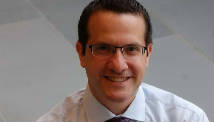OTTAWA: Indigenous Canadians marched on the capital and other major cities threatening to bring the economy "to its knees" as their leaders met with officials to try to resolve a row over extreme poverty on reserves.
As many as 500 aboriginals protested in freezing rain outside parliament in Ottawa in support of a hunger strike by a northern Ontario chief. Hundreds more held rallies in Montreal and Winnipeg.
Canadian Prime Minister Stephen Harper, meanwhile, met with 20 native chiefs behind closed doors in a bid to stem an escalation of demonstrations and highway blockades across the country.
Aboriginal Affairs Minister John Duncan said after the meeting that the prime minister agreed to ongoing "high level dialogue on the treaty relationship".
But beyond this commitment it was unclear at the end of the day what, if anything, was accomplished except to highlight divisions among Canada's more than 600 tribes.
Attawapiskat Chief Theresa Spence, whose 32-day hunger strike has become a focal point for an aboriginal rights movement calling for improved living conditions on reserves, boycotted the emergency talks.
She and her supporters had insisted on the participation of Queen Elizabeth II's representative in Canada, Governor General David Johnston, describing his attendance as "integral when discussing inherent and treaty rights". Canada's more than 600 indigenous reserves were created by royal proclamation in 1763.
But Johnston declined, saying their plight is a political matter that must be taken up with elected officials.
"We're giving this opportunity for them to resolve the broken promises from the treaty. And all we're asking is a meeting and to sit down with them," Spence told a news conference earlier in the day.
"All we want is justice, equality and fairness which we're entitled (to)," she said, vowing to continue her hunger strike.
Chiefs from Manitoba and Ontario provinces, as well as the Northwest Territories, joined her boycott, insisting on a meeting with the prime minister on their terms and vowing to "bring the Canadian economy to its knees" if their demands were not met.
This could include blocking resource development on their ancestral lands, said Manitoba Grand Chief Derek Nepinak.
"We have the warriors that are standing up now, that are willing to go that far. So we're not here to make requests, we're here to demand attention," he said.
Nepinak was echoed by Grand Chief Gordon Peters of the Association of Iroquois and Allied Indians who called for protests to be stepped up with all major road and rail lines shut down.
Foreign investments in Canada not approved by First Nations could also be targeted, he told reporters.
Assembly of First Nations National Chief Shawn A-in-chut Atleo, after leading a delegation to meet with Harper, avoided speaking to reporters.
Ahead of the talks he said he would seek a commitment from the prime minister for a "long-term process" to address native concerns, including outstanding land claims, hundreds of missing and murdered native women, high unemployment among natives, and too few schools in native communities.
A fix, Atleo said, could also include natives getting a share of royalties from some C$650 billion in resource development planned for the coming decade.
In addition to complaints of severe poverty, natives also blasted changes last month to environmental and other laws they say impact their hunting and fishing rights, which allow tribes to lease reserve lands to non-natives.
Although the government insists the latter was meant to boost economic development, some fear it will result in a loss of native control of reserve lands and eventually lead to the end of aboriginal communities.
- AFP/al













